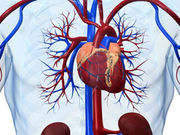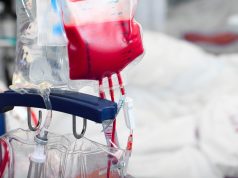Use of method that does not require coronary artery disease linked to lower mortality rate
WEDNESDAY, Sept. 20, 2017 (HealthDay News) — Definition of type 2 myocardial infarction (T2MI) using a method that does not require the presence of coronary artery disease is associated with a lower event-related mortality rate, according to a study published in the Sept. 26 issue of the Journal of the American College of Cardiology.
Thomas Nestelberger, M.D., from the University Hospital Basel in Switzerland, and colleagues adjudicated the final diagnosis of 4,015 patients with symptoms suggestive of myocardial infarction by two methods: one required presence of coronary artery disease, a common interpretation of the 2007 universal definition (T2MI2007), and one did not (the 2012 universal definition [T2MI2012]).
The researchers found that the incidence of T2MI was 2.8 percent (112 patients) based on the T2MI2007 definition. T2MI incidence increased to 6 percent with application of the more liberal T2MI2012 definition (relative increase of 114 percent; 128 reclassified patients [T2MI2012reclassified]). Among T2MI2007, 6.3, 22, and 71 percent of patients, respectively, received coronary revascularization, dual-antiplatelet therapy, and high-dose statin therapy, compared with 0.8, 1.6, and 31 percent, respectively, among T2MI2012reclassified patients (all P < 0.01). At 90 days, cardiovascular mortality was 0 percent among T2MI2012reclassified, similar to patients with noncardiac causes of chest discomfort (0.2 percent), and significantly lower than among T2MI2007 and type 1 myocardial infarction (T1MI) patients (3.6 and 4.8 percent, respectively).
“T2MI2012reclassified has a substantially lower event-related mortality rate compared with T2MI2007 and T1MI,” the authors write.
Several authors disclosed financial ties to the pharmaceutical industry.
Copyright © 2017 HealthDay. All rights reserved.








